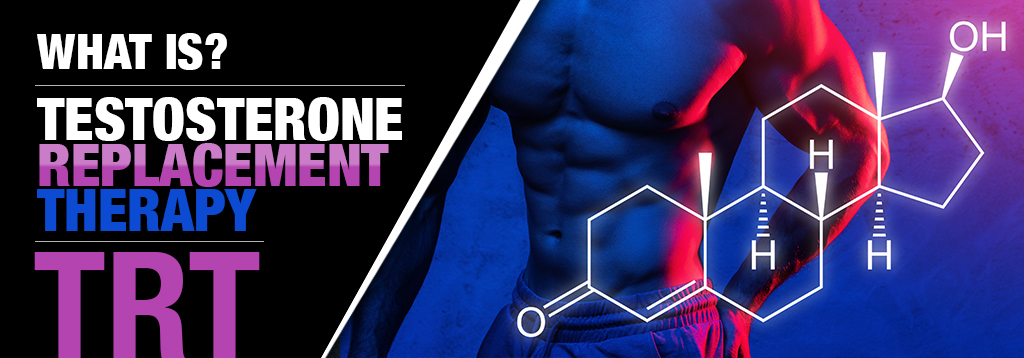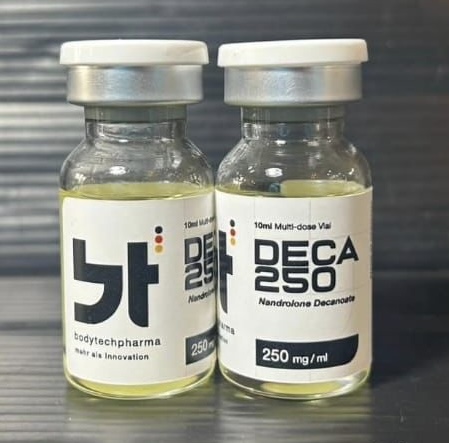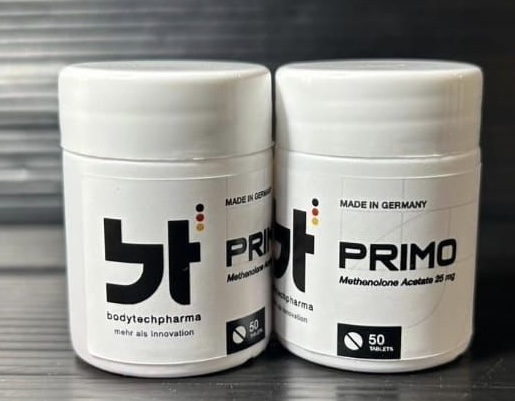
What is Testosterone Replacement Therapy (TRT)
Low testosterone levels are becoming increasingly common in men. The condition, which can lead to a wide range of adverse effects from low energy and sex drive up to prostate cancer, has been found as high 38%. The average man produces around 250 grams during puberty.
Still, he may only make 100-200g per year after his 30th birthday due to declining health conditions such as obesity or diabetes that have taken their toll on this crucial hormone production process. Medical professionals have recently discovered a new way to extend life expectancy and improve quality of living through testosterone replacement therapy (TRT). As research progresses, it is becoming clear how essential levels in this hormone are for our well-being.
But what exactly is TRT, and how does it work? Are there any benefits of TRT? More importantly, what is the risk of TRT?
TRT, or Testosterone replacement therapy, can be administered to males to increase their natural testosterone levels. It has many benefits with few risks and should only come at the recommendation of one's doctor because it does have side effects, which we will now discuss below.
Here are some main points about TRT: TRTs main goal is an intervene for those suffering from low T symptoms (i)e decreased energy; poor sex drive/erectile dysfunction etc. Lack of muscle mass & fatigue due to lower "Testos," the body's own natural hormone production processes at normal levels.
The info provided here should give you an overview of TRT, so please read our article for more details!
What exactly is TRT?
Testosterone replacement therapy (TRT) is a unique hormone replacement intended to return healthy levels in someone who suffers from low sexual desire. Like insulin, the body has an endogenous production level that it needs but lacks; when this occurs, TRT becomes necessary as exogenous sources are instead required for life functions such as regulating energy states or building muscle mass.
TRT, or Testosterone replacement therapy, is a relatively new practice. However, in the past few decades, it has become increasingly popular for men to turn back time and rediscover their youthful selves through injections of testosterone into their bodies. Both on an outpatient basis and if they're experiencing TRT side effects while taking other forms like patches and creams that are absorbed by skin cells instead of being injected directly into the bloodstream (a more invasive process).
The number of men over 50s taking TRT declines, but younger males are stepping up to take action. We encourage these brave souls who suspect they may have low testosterone levels and want a safe way forward for themselves.
Testosterone has been one of America's most widely prescribed medications for the last decade. In 1935 it was first synthesized in a lab setting. Since then, there have been many clinical applications for this male hormone to help people live stronger, healthier lives with were more vitality than before!
In the past, many men were diagnosed with low testosterone and treated by physicians who didn't fully understand how it worked. Nowadays, we better understand pathophysiological deficiency mechanisms in males over 50, so TRT has become more popular among older patients.
The rise & spread due TRTs follows several factors that can be attributed mainly to aging populations increasing at rapid rates going up 18% every ten years according to data compiled between 2008 - 2013. Scientists made significant strides forward in studying these diseases alongside doctors. They have found out why some individuals might develop gynecomastia if suffering from hypogonadism.
What are some common low T (Testosterone) Symptoms
The symptoms of low T typically negatively impact general well-being and health. Men with low T deficient also find that their symptoms worsen with time, which drastically lowers their quality of life and reduces motivation in the morning.
Let's have a look at the most common symptoms of low T that men may experience:
- Lowered libido/sex drive
- Erectile dysfunction aka ED (impotence)
- Low energy throughout the day
- Decreased muscle mass and strength
- Body fat increase
- Depressions
- Shrinking testes
- No mental focus (brain fog)
- Infertility
- Hot flashes
- Low red blood cell count (anemia)
- Brittle bones (osteoporosis) and general weakness
- Hair loss (particularly body hair) (androgenic alopecia)
- Obstructive sleep apnea (OSA)
If you're encountering any (or all) of these symptoms, there is a chance that TRT may be able to give you your life back. However, before making this decision for yourself, it's necessary to have blood work done and see an endocrinologist who will help guide the process in determining if TRT would benefit someone like yourself from going through with treatment.
How does TRT work
Previously we answered what is TRT is, and now you're probably wondering how it works. In the short term: testosterone gives your body what it needs to perform correctly and has a significant impact on many biological processes which are necessary for health - this includes things like muscle mass or energy levels!
Low testosterone levels increase the risk of type-2 diabetes, metabolic syndrome, and other health conditions. Having low T also makes it significantly more challenging to build muscle mass. The body's primary hormones in charge of building up the protein (testosterone) become less effective because they're not doing their job correctly - which has been shown by recent studies on this subject matter.
When your body doesn't produce enough testosterone, you're at risk for all sorts of health problems, including Low T. TRT works by bringing the levels back up to a healthy range and then slowly healing symptoms over time.
Some men will notice improvements in their energy levels, vitality, and quality of life within a month of starting testosterone replacement therapy. However, other men may take up to two months before realizing any changes at all.
A TRT regimen for your body can have many benefits, such as increased strength or weight loss, but you must know how long these effects last so they don't discourage you from sticking with the program!
TRT treatments are ideal for men who want to feel more confident and live up to their true masculine potential. It can help with symptoms like low energy levels or depression! Make sure you follow all of the doctor's instructions when taking testosterone so that it works best for your individual needs- as well as any other medications prescribed by another health professional such as an allergist or cardiologist.
TRT benefits. What are they?
TRT is an effective treatment for individuals with low testosterone. The advantages of TRT won't happen right away, but they will improve over time as long as you give the hormone enough time and space in your body's natural balance (homeostasis). But, again, as a beginner, please don't get too confident before knowing where it leads; benefits from this therapy aren't happening right away. There may be some improvement within the short term, but we are not talking about a quick fix here, so patience is vital!
TRT's high success rate in males with low T is a compelling long-term solution to endocrine dysfunction.
TRT's short-term advantages may include:
- Increased sex drive
- More satisfactory erectile quality
- Higher stamina and better mental focus
- More energy, motivation, and confidence throughout the day
- Healthier appetite regulation
- Improved sleep quality
Long-term TRT users may experience the following:
- More muscle growth (as part of a diligent weight training regimen)
- Enhanced recovery after exercising
- Fuller facial hair growth
- Better bone and joint health
- Increase in red blood cell production
- Improved immune function
TRT is not a one-size-fits-all treatment protocol, and some men will respond more quickly than others. Therefore, your mindset should be on the long-term results of TRT instead of just wanting an easy fix for your issues with low testosterone levels to maximize their benefits from this medication over time.
TRT and its risks
There are some side effects to testosterone, but they're relatively mild. Doctors will adjust a patient's dose if their levels get too high or low on TRT because the goal is always keeping your hormone level in a healthy range for optimal health benefits.
Testosterone is often associated with the potential for serious side effects, such as "roid rage." However, when used in small doses, it has little risk of inducing these harmful outcomes. For example, if you're looking to improve your physical capabilities by taking higher than recommended amounts (e.g., on TRT), there will likely be some negative consequences like gynecomastia, but this doesn't happen at lower levels where testosterone may prove beneficial instead!
The risks of testosterone replacement therapy are relatively limited. However, some men may notice they have oily skin, body hair growth (back and chest), or shrinkage in their testes after being on TRT for some time. These side effects can be manageable with medication to suppress them and might fade away as the body adjusts over time.
Why do the testicles shrink when men take testosterone? The body regulates its testosterone production through a negative feedback loop mechanism involving the hypothalamus, pituitary gland, and gonads (testes). When it comes to producing testosterone, the pituitary gland sends out luteinizing hormone (LH), which communicates with testes. This process causes testosterone production in healthy individuals and keeps up their normal levels.
Testosterone Replacement Therapy (TRT) is a synthetic form of testosterone that provides men with hypopituitarism. TRT can "replace" the natural production your body no longer produces. This replacement will allow you to resume living as before while still receiving drugs prescribed for other conditions like symptoms related to cancer treatment.
One might experience hormonal changes in your testicles if you take a synthetic form of testosterone. Testosterone is transformed into dihydrotestosterone, which can cause them to shrink and reduce sperm counts or have trouble orgasming during sex for males that use these drugs. These symptoms happen because they block their body's natural luteinizing hormone (LH) production.
Yet, there are ways to manage these side effects of TRT. For example, keeping your skin clean with daily showers and grooming will help manage acne while preventing excessive body hair growth due to hormone imbalance. In addition, adding human chorionic gonadotropin (HCG) to the treatment plan helps maintain fertility in men on this form of testosterone replacement therapy.
Don't change your TRT protocol or medications without first consulting with a physician despite the risks of going untreated.
TRT conclusion
TRT, a safe and effective form of hormone replacement therapy, has been used for decades to treat males with low testosterone. If your body isn't producing enough T, TRT can help restore balance in the system, so you feel better all around!
Men suffering from signs of low testosterone should check their levels with a blood test. You'll be glad to know that TRT is often life-changing for men who have low energy levels, lack libido, and feel unwell. Speak with your nearest medical professional to see if you have low T.





